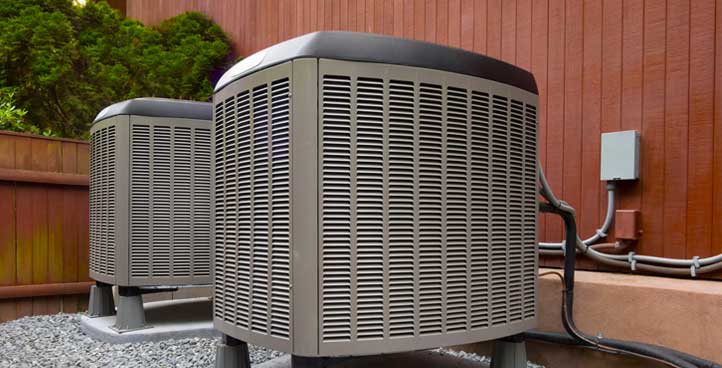SEER ratings are a crucial factor to consider when you’re looking to purchase an air conditioning or heat pump system. SEER stands for Seasonal Energy Efficiency Ratio, which measures the cooling efficiency of the system. In essence, the higher the SEER rating, the more efficient the system is at cooling.
SEER ratings are significant because they can have a considerable impact on your energy bills. A higher SEER rating means that the AC system uses less energy to cool the same space, resulting in lower energy bills. Additionally, a higher SEER rating can also lead to a longer lifespan for the system, as it’s not overworked and strained to maintain a comfortable temperature.
Understanding SEER Ratings
Basically, SEER ratings are a measure of the efficiency of an air conditioning or heat pump system. They are important because they help homeowners understand how much energy their system is using and how much it’s costing them.
Definition of SEER Ratings
SEER measures how much cooling a system provides per unit of energy consumed over an entire cooling season. The higher the SEER rating, the more efficient the system is.
The Department of Energy sets minimum SEER ratings for air conditioning systems based on geographic regions in the United States. In fact, they have updated SEER requirements on the 1st of the year. The SEER ratings have now been made more stringent to better reflect real world applications. The new ratings are SEER2, and the minimum for Florida is 14.3 SEER2.
It’s important to note that many of the higher efficiency systems are multi speed to better adjust to the varying load conditions every day. These multi speed systems tend to allow for better humidity control and better indoor comfort control.
How SEER Ratings are Calculated
SEER ratings are calculated by dividing the system’s cooling output over a typical cooling season by the total energy it consumes during that same period. The SEER calculation incorporates a comprehensive analysis of various factors that influence the efficiency of an air conditioning system. These factors encompass considerations such as the system’s size, the specific type of refrigerant used, and the efficiency of the compressor. By evaluating these variables, the SEER rating provides an evaluation of the system’s energy efficiency.
SEER ratings are based on laboratory testing, which means that they may not always reflect the actual energy usage of a system in the real world. However, they are still a useful tool for comparing the efficiency of different systems.
It’s vital to understand that higher SEER ratings do not always mean better performance. Other factors, such as proper installation and maintenance, can also affect the performance and efficiency of a system.
Importance of SEER Ratings
Energy Efficiency
SEER ratings measure the cooling output of an air conditioning unit or heat pump over an entire season, divided by the amount of energy it uses. As mentioned, a higher SEER rating indicates a more efficient unit that uses less energy to produce the same amount of cooling as a lower SEER unit. This means that a higher SEER unit will save energy and reduce the amount of greenhouse gas emissions produced.
Savings on Electrical Bills
A higher SEER rating can also result in significant cost savings over time. While a higher SEER unit may cost more upfront, the energy savings over the life of the unit can offset the initial cost. According to the Department of Energy, upgrading from a 9 SEER unit to a 13 SEER unit can save up to 30% on cooling costs.
Impact on the Environment
By using less energy, a higher SEER unit can also reduce the environmental impact of air conditioning. You probably already know that air conditioning units are one of the largest sources of energy consumption in homes and businesses, and as a consequence, the subsequent greenhouse gas emissions produced by these units significantly contribute to climate change. Choosing a higher SEER unit can help reduce this impact, and may also qualify for energy efficiency incentives or tax credits.
Consult Ambrose Air to Learn More About Air Conditioning Systems
Overall, SEER ratings are an important consideration when purchasing an air conditioning unit or heat pump. By choosing a more efficient unit with a higher SEER rating, homeowners can save money, reduce energy usage, and help protect the environment. When you consider SEER ratings, you can make a well-informed decision on which air conditioning system to choose for your home. Ultimately, you’ll need to try to find a comfortable balance between your cooling preferences, SEER ratings, and budget. Consult our AC experts today, so we can help you understand more about the various AC systems available and choose the best one for your needs.

Pat Ambrose has over 40 years of experience in the HVAC industry, serving Central Florida. He tested for and received his class B air conditioning license almost 35 years ago and then improved that to a class A license in the late 90s. Pat and his wife started their own HVAC business in the early 90s, serving Central Florida. Pat still serves as the president of Ambrose Air, Inc., where he works as the chief operating officer. Over his years in business, Pat has served as the president of both the local association (ACCA/CF) and the state association of contractors (FRACCA). His expertise has helped his customers on many occasions, solving air conditioning problems that others had missed.



